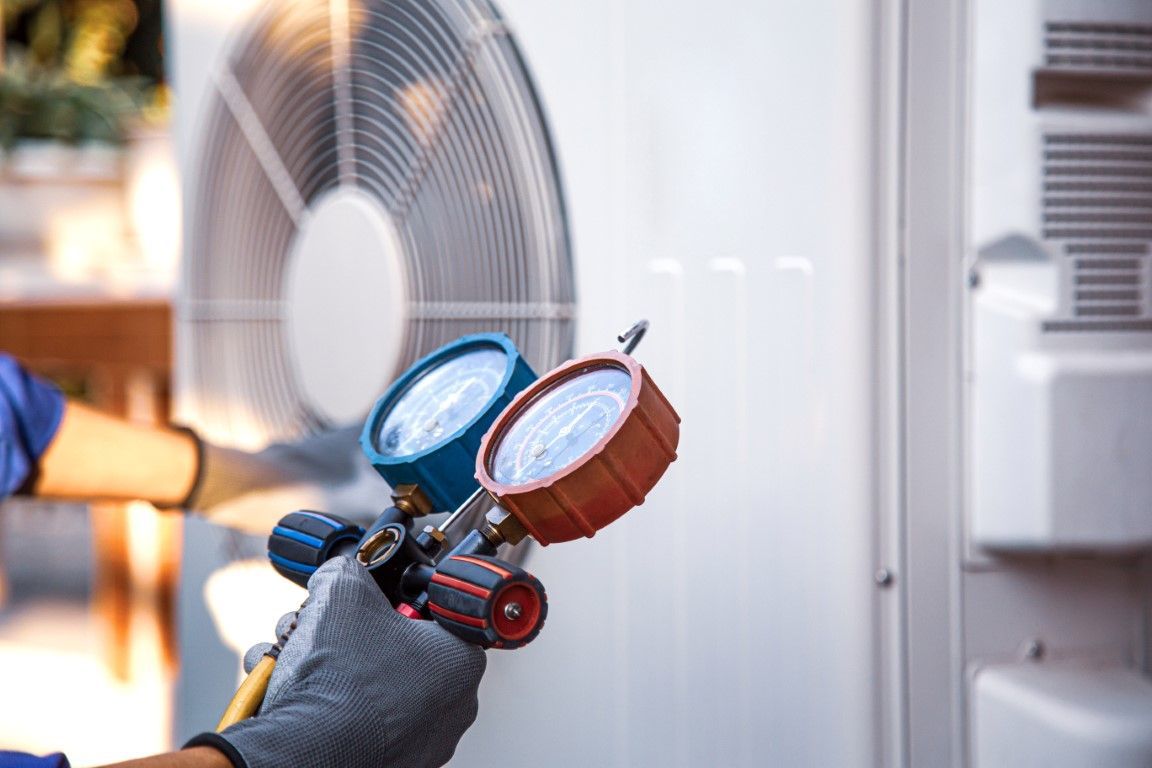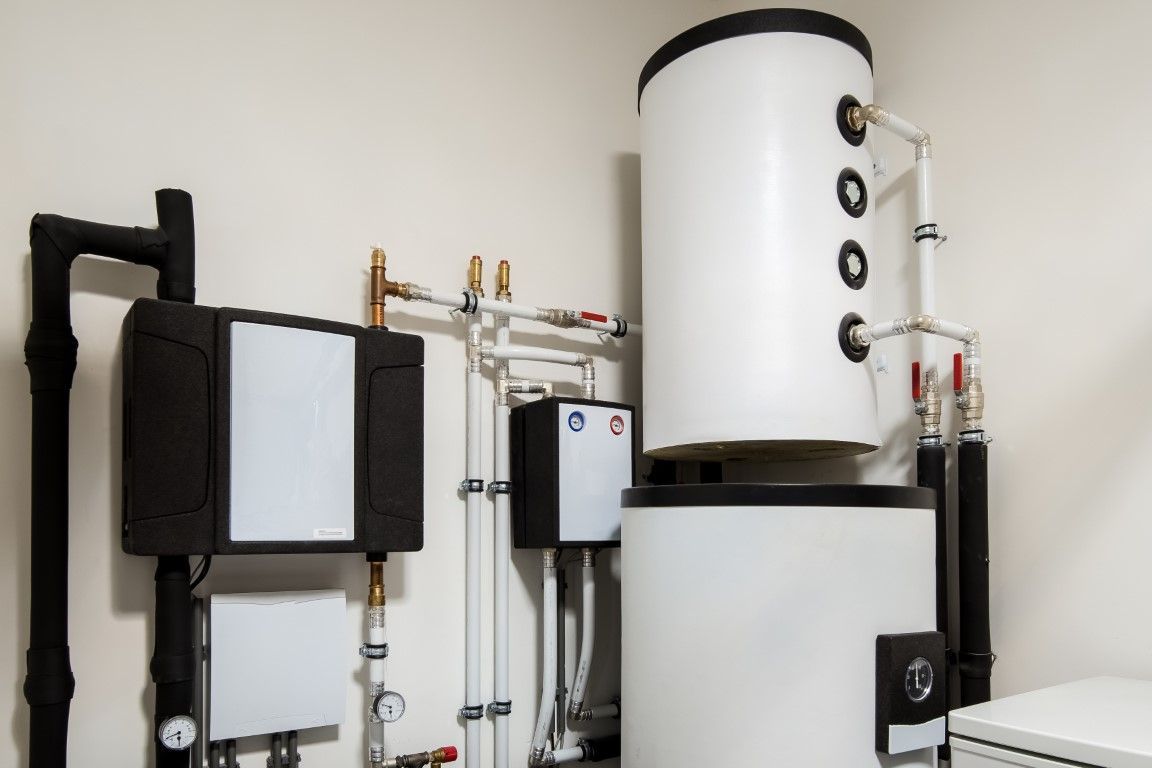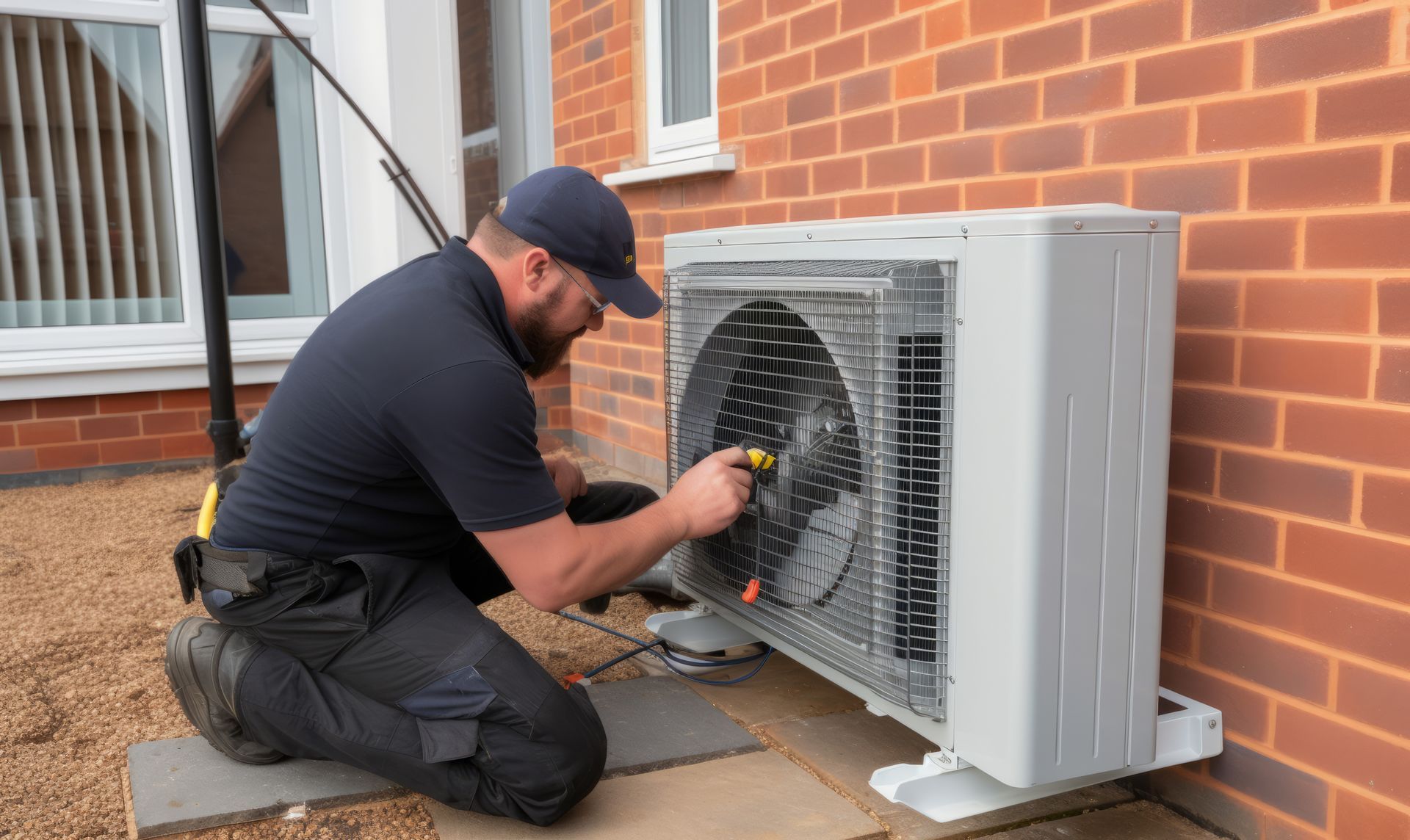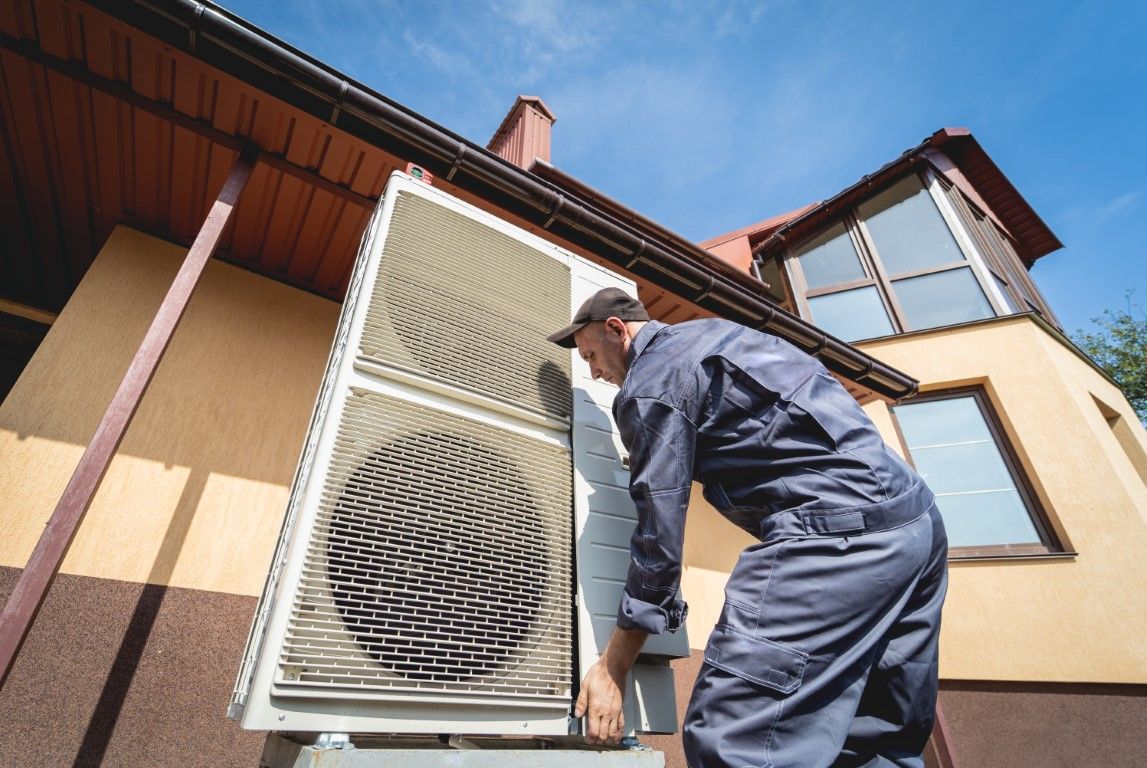Air Source Heat Pumps: Understanding the Costs and Potential Savings
Home heating accounts for 38% of gas use in the UK, contributing to considerable CO2 emissions, with the average gas boiler emitting 2.2 tonnes of CO2 annually. An air source heat pump, powered by renewable electricity, offers a more sustainable alternative, which is why the government is promoting its adoption. The UK government aims to phase out gas boilers by 2035 as part of its plan to achieve net-zero emissions by 2050. To support this transition, grants are being offered to help households install air source heat pumps and other low-carbon heating solutions, encouraging homeowners to switch from their old gas and oil boilers to cleaner, greener options.
What is an Air Source Heat Pump and How Does It Work?
In simple terms, an Air Source Heat Pump works like a reverse fridge. It draws heat from the outside air, concentrates it, and transfers it indoors to provide central heating and hot water. The unit looks similar to a standard air-conditioning system and is installed outside the home. Most air source heat pumps can operate in temperatures as low as -10°C to -20°C. However, during an extreme cold snap, it’s possible, though rare, that they might temporarily stop working.
What Is the Cost of Installation of an Air Source Heat Pump?
On average, installing an air source heat pump for a three-bedroom house costs around £10,000. The pump itself typically ranges from £5,000 to £7,000, meaning that roughly half of the total cost is attributed to installation.The price of an air source heat pump in the UK varies based on factors such as the type of pump you select, the complexity of the installation, the size of your home, and the labor costs of the installer you choose. Annual running costs for an air source heat pump range from £685 to £1,550, depending on your home's size and your household's energy requirements.
What Government Grants Are Available?
The UK Government's Boiler Upgrade Scheme officially launched in April 2022 as part of the Heat and Buildings Strategy. This £3.9 billion funding initiative aims to lower carbon emissions from UK homes to meet the net-zero targets set for 2050. The scheme is set to continue until 2028. Under the BUS, eligible homeowners in England and Wales can receive a fixed grant of up to £7,500 to help cover the cost of installing a new air source heat pump. It is anticipated that demand will exceed the available funds, so those who can meet the eligibility criteria and apply promptly are likely to secure the grants.
How Much Do Air Source Heat Pumps Cost to Operate?
Air source heat pumps typically have lower running costs compared to traditional heating systems, helping you avoid overspending on energy bills over time. Homeowners replacing an inefficient old oil-burning boiler with an Air Source Heat Pumps can expect some reduction in their annual energy costs, though it may not be substantial. In contrast, those switching from a gas boiler are unlikely to see any savings and might end up paying more each year. This is due to the fact that electricity costs include carbon taxes and subsidies for low-carbon energy initiatives. Environmental groups have urged the government to shift these levies to gas bills instead, to encourage households to move away from oil and gas.
What Are the Limitations of Air Source Heat Pumps?
The main issue is that many UK homes aren’t suitable for an air source heat pump. Flat owners often have trouble getting permission, and even if an installer can fit a system in a small space, it can be tricky. Retrofitting a system with an existing boiler can be difficult because much of the plumbing may need replacing. You also need space for a water tank, and an air source heat pump cannot be covered or boxed in, as this would affect its efficiency. As a result, the visibility of the heat pump can be a concern for some homeowners. Air source heat pumps aren't right for all properties; older or poorly insulated homes may struggle to heat properly and could cost too much to run.
Is It Worth Installing a Heat Pump?
If you want to live sustainably, think about how you heat your home and water. Finding the right solution can be tricky. Most UK homes use boilers for heating, and new efficient boilers can help save money on energy bills if you prefer a traditional method. If you want an alternative, consider an air source heat pump. They are energy-efficient for heating your home and water, need little maintenance, and can lower your heating costs and carbon footprint. With the gas boiler ban coming in 2035, heat pumps are likely to be one of the few good ways to heat your home effectively.
Air source heat pumps are a good option for homeowners who want to heat their homes more sustainably. As the UK moves away from gas boilers, these systems can help reduce carbon emissions and support the government's environmental goals. While the installation costs can be high, with grants available to help cover these costs, air source heat pumps may save money on energy bills in the long run and require little maintenance. However, homeowners should check if their homes are suitable for these pumps, as they might not work well in every situation. Choosing air source heat pumps could be a step toward greener and more efficient heating.
If you’re ready to make the switch and install an air source heat pump,
contact
Darlington Heat Pumps today. Our team can provide expert advice and installation services tailored to your home. Don't wait—start your journey towards sustainable heating now!




